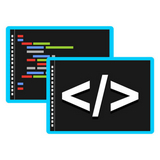Poco库简化C++网络编程,支持跨平台HTTP客户端/服务器及TCP通信。1. 安装需配置头文件与链接库;2. HTTP客户端示例请求httpbin.org并输出响应;3. HTTP服务器通过多线程处理并发请求;4. TCP通信使用Socket API实现客户端与服务器交互。

使用Poco库进行C++网络开发可以显著简化网络编程的复杂性。Poco(POrtable COmponents)是一套开源C++类库,专注于简化网络通信、文件系统访问、线程管理、日期时间处理等常见任务,特别适合开发跨平台的网络应用。
1. 安装与配置Poco库
在开始之前,需要确保Poco库已正确安装并配置到开发环境中。
- Linux/macOS:可通过包管理器安装,如Ubuntu下运行
sudo apt install libpoco-dev;也可从官网源码编译安装。 - Windows:推荐使用vcpkg或直接下载预编译版本,或通过CMake构建源码。
- 配置项目:将Poco的头文件路径添加到包含目录,链接所需的库文件(如 PocoNet, PocoFoundation 等)。
2. 使用Poco实现HTTP客户端
Poco提供了简洁的接口用于发起HTTP请求,适用于与Web服务交互。
#include#include #include #include #include #include int main() { try { Poco::Net::HTTPClientSession session("httpbin.org", 80); Poco::Net::HTTPRequest request(Poco::Net::HTTPRequest::GET, "/get", Poco::Net::HTTPMessage::HTTP_1_1); session.sendRequest(request);
Poco::Net::HTTPResponse response; std::istream& rs = session.receiveResponse(response); std::string result; Poco::StreamCopier::copyToString(rs, result); std::cout << "Status: " << response.getStatus() << std::endl; std::cout << "Body: " << result << std::endl; } catch (Poco::Exception& ex) { std::cerr << "Error: " << ex.displayText() << std::endl; } return 0;}
该示例发送一个GET请求到 httpbin.org,并打印响应内容。Poco自动处理连接、协议细节和异常。
立即学习“C++免费学习笔记(深入)”;
3. 实现HTTP服务器
Poco支持快速搭建基于多线程的HTTP服务器,适合轻量级Web服务。

Delphi 7应用编程150例 CHM全书内容下载,全书主要通过150个实例,全面、深入地介绍了用Delphi 7开发应用程序的常用方法和技巧,主要讲解了用Delphi 7进行界面效果处理、图像处理、图形与多媒体开发、系统功能控制、文件处理、网络与数据库开发,以及组件应用等内容。这些实例简单实用、典型性强、功能突出,很多实例使用的技术稍加扩展可以解决同类问题。使用本书最好的方法是通过学习掌握实例中的技术或技巧,然后使用这些技术尝试实现更复杂的功能并应用到更多方面。本书主要针对具有一定Delphi基础知识
#include#include #include #include #include #include #include using namespace Poco::Net; using namespace Poco;
class HelloHandler : public HTTPRequestHandler { public: void handleRequest(HTTPServerRequest& req, HTTPServerResponse& resp) { resp.setStatus(HTTPResponse::HTTP_OK); resp.setContentType("text/html"); std::ostream& out = resp.send(); out << "
Hello from Poco!
"; out.flush(); } };class RequestHandlerFactory : public HTTPRequestHandlerFactory { public: HTTPRequestHandler* createRequestHandler(const HTTPServerRequest&) { return new HelloHandler(); } };
int main() { ServerSocket svs(8080); HTTPServer srv(new RequestHandlerFactory(), svs, new HTTPServerParams); srv.start(); std::cout << "Server started on port 8080..." << std::endl; getchar(); // 按任意键退出 srv.stop(); return 0; }
启动后访问 http://localhost:8080 即可看到返回内容。每个请求由独立线程处理,支持并发。
4. 使用Poco进行TCP通信
对于更底层的网络通信,Poco也提供了Socket API支持TCP客户端与服务器开发。
TCP服务器示例:
#include#include #include #include using namespace Poco::Net; using namespace Poco;
int main() { ServerSocket serv(9988); std::cout << "TCP Server listening on port 9988..." << std::endl;
while (true) { StreamSocket client = serv.accept(); SocketStream str(client); str << "Welcome to Poco TCP Server!" << std::endl; std::string line; std::getline(str, line); std::cout << "Received: " << line << std::endl; client.close(); } return 0;}
TCP客户端:
StreamSocket socket; socket.connect(SocketAddress("localhost", 9988)); SocketStream str(socket); str << "Hello Server!" << std::endl; std::string response; std::getline(str, response); std::cout << response << std::endl;
基本上就这些。Poco封装了复杂的网络细节,让开发者能专注业务逻辑。配合良好的文档和跨平台特性,是C++网络编程的实用选择。不复杂但容易忽略的是异常处理和资源释放,建议始终用try-catch包裹网络操作。






























